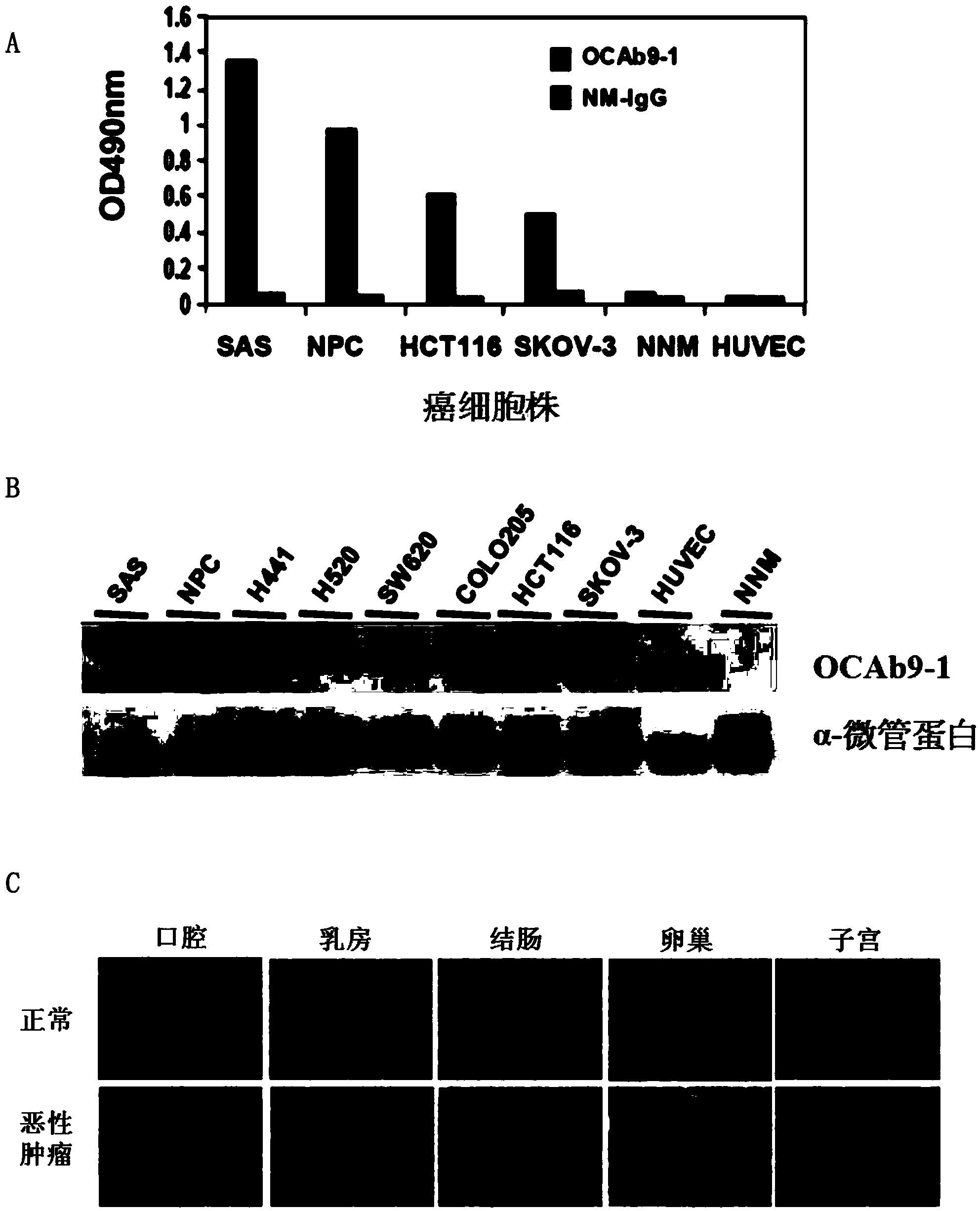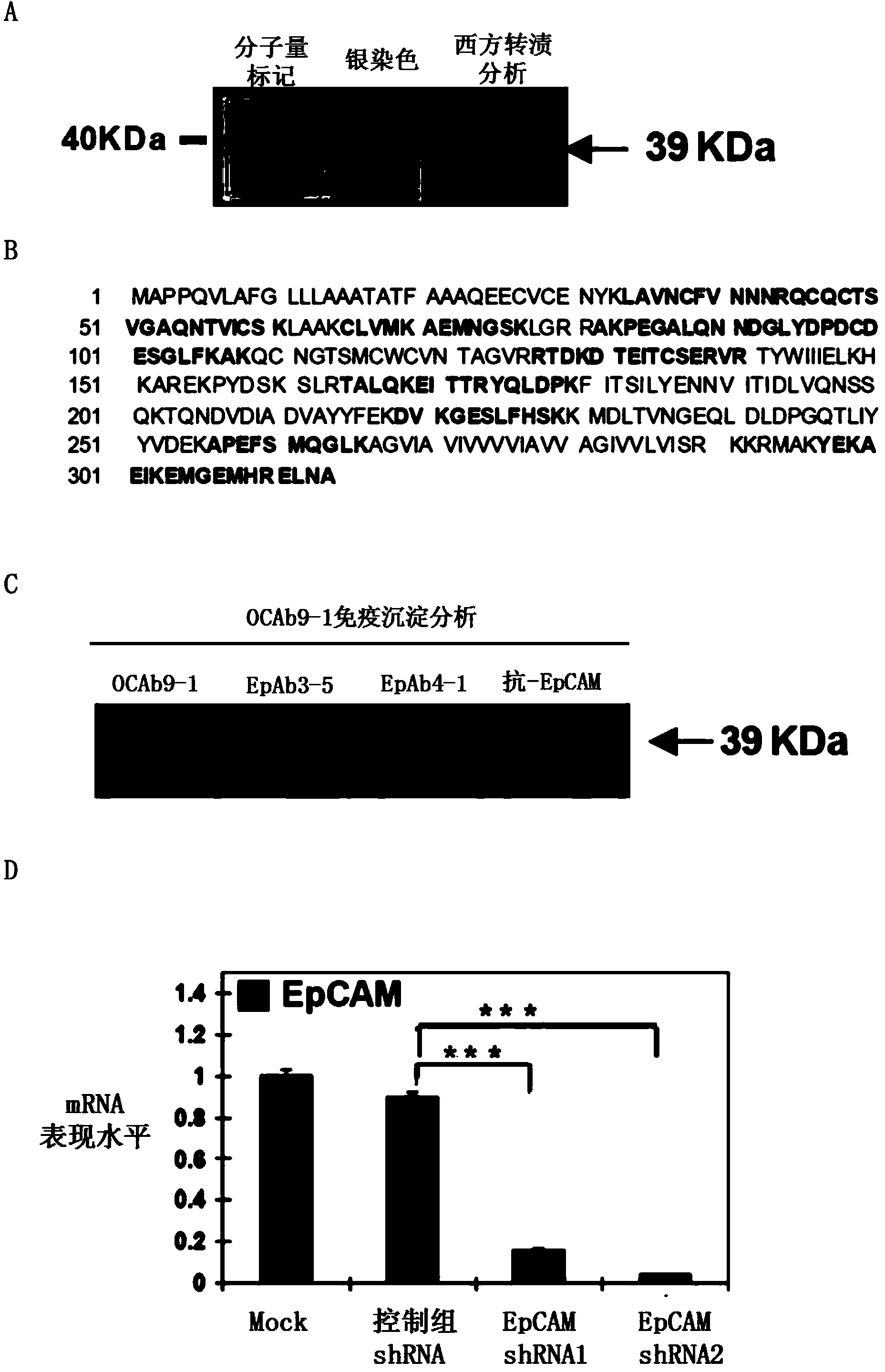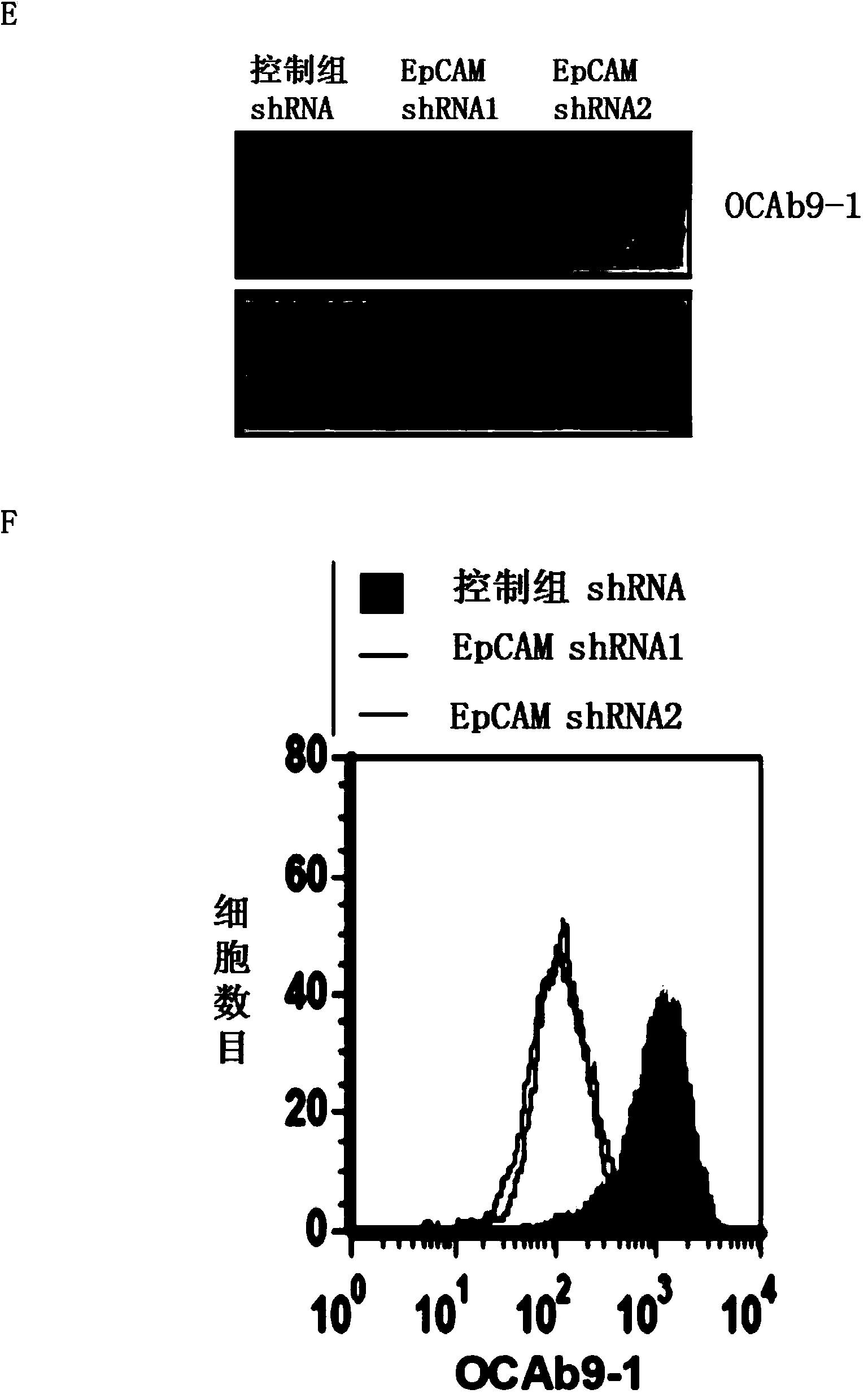Anti-epithelial cell adhesion molecule (EpCAM) antibodies and methods of use thereof
A technology of epithelial cells and adhesion molecules, applied in the direction of anti-receptor/cell surface antigen/cell surface determinant immunoglobulin, antibody, antibody medical components, etc., can solve the problem of no obvious increase in long-term survival rate
- Summary
- Abstract
- Description
- Claims
- Application Information
AI Technical Summary
Problems solved by technology
Method used
Image
Examples
Embodiment
[0071] The devices, methods and related results according to the embodiments of the present invention are as follows, but are not intended to limit the scope of the present invention. Note that headings or subheadings are used in the Examples for the convenience of the reader, but in no way limit the scope of the present invention. Furthermore, some theories are proposed and disclosed herein, but no matter whether these theories are right or wrong, they do not limit the scope of the present invention, as long as the present invention is implemented according to the present invention, regardless of any particular theory or action flow.
[0072] Materials and Methods
[0073]Cell lines and culture. The following human cell lines were used: oral cancer (FaDu and SAS), nasopharyngeal cancer (NPC039), ovarian cancer (SKOV-3), lung cancer (CL1-5, H441 and H520), pancreatic cancer (MIA PaCa-2), Colorectal cancer (COLO205, HCT116 and SW620), hepatocellular carcinoma (Hep3B and Mahla...
PUM
| Property | Measurement | Unit |
|---|---|---|
| molecular weight | aaaaa | aaaaa |
| molecular weight | aaaaa | aaaaa |
| molecular weight | aaaaa | aaaaa |
Abstract
Description
Claims
Application Information
 Login to View More
Login to View More - R&D
- Intellectual Property
- Life Sciences
- Materials
- Tech Scout
- Unparalleled Data Quality
- Higher Quality Content
- 60% Fewer Hallucinations
Browse by: Latest US Patents, China's latest patents, Technical Efficacy Thesaurus, Application Domain, Technology Topic, Popular Technical Reports.
© 2025 PatSnap. All rights reserved.Legal|Privacy policy|Modern Slavery Act Transparency Statement|Sitemap|About US| Contact US: help@patsnap.com



